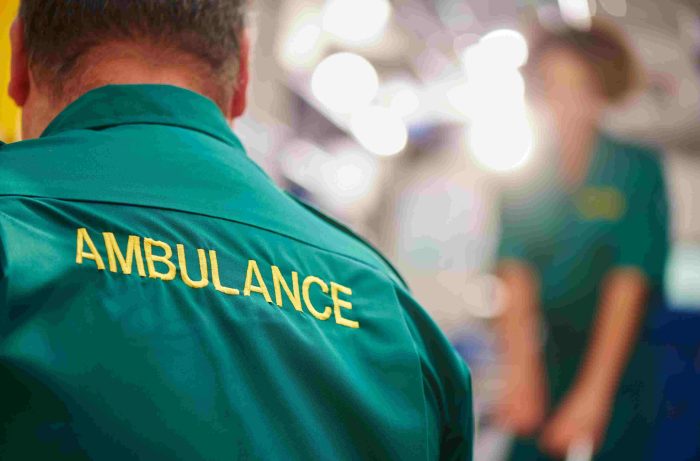This article provides you with 5 EASY ways to keep yourself safe when others are mentally unwell.
Safety First! If you don’t check for ‘Danger’ first in all mental health situations, then you are putting yourself at risk. This might be actual physical harm, emotional damage or both. There are easy ways you can practice to keep yourself safe when others are mentally unwell.
Mental health problems and difficulties can affect anyone at any time. Supporting a family member, colleague, or friend through these situations and challenges is the right thing to do. However, it can also be one of the most challenging things you ever undertake, so it is not for the faint-hearted.
In ANY situation, it is vitally important that you ensure your own well-being and safety FIRST. This is especially true if someone’s mental state leads to unpredictable or potentially harmful behaviour.
If illicit or prescription drugs are involved, then a call to Ambulance on ‘000’ is going to be more helpful than a head-on approach
In writing this blog, I am hoping that it will help anyone who wants to better understand how to stay safe while at the same time still being supportive and caring.
1. Learn about Mental Health issues and be clear about your limits.
Safety First! The first step is learning about mental health conditions and issues. The most common issues in Australia today are Anxiety, Depression, as well as Alcohol addiction and Substance abuse. Less common illnesses such as bipolar disorder, schizophrenia, and other conditions, such as personality disorders, can cause significant distress as well as significant changes to a person’s behaviour.
To be clear: Not all individuals with mental health conditions are dangerous. BUT – everyone responds differently in a crisis, and being armed with some knowledge is a powerful tool to best prepare yourself to provide the support you can. To learn more, undertake a Mental Health First Aid course.
It’s important to recognise that you are not qualified to diagnose or speculate on treatment options. However, you can offer empathy and support by letting the person know you are willing to listen. Knowing when to bring in the experts, such as the Police or ambulance, rather than calling a helpline, is an essential quality to keep yourself safe. This is an EASY way to keep yourself safe when others are mentally unwell.
This also demonstrates that you are clear about your limits.
Your role is as a support person, you are not there to treat, or fix them. Knowing when a situation is beyond your capabilities is something everyone can learn. Step by Step Training offer Mental Health First Aid Training and other courses tailored around Mental Health and Resilience.

2. Boundaries can still be set during a crisis.
Safety First! While boundaries can be set during a crisis, it may be more useful to establish boundaries in all relationships before a crisis emerges. This will mean that should a crisis occur, boundaries are already practiced and in place, and maintaining them will be somewhat easier.
Boundaries in many aspects of life are essential. If someone with a personality disorder yells, blames, or frequently manipulates, then it is vital that you stay safe and either leave or state your limits. For example:
- “I would like to help, but I can’t stay if you keep raising your voice at me.”
- “I care about you, and I don’t have the skills to help you. I’d like to call someone in.”
One of the most difficult things to do is to actually stick to your boundaries. However, it is wise to remember that just like in an aircraft, you can’t support someone else if your own oxygen mask isn’t fitted properly. If someone’s behaviour is damaging your own mental health, don’t be afraid to pause, distance yourself and call in the professionals if needed. This is another EASY way to keep yourself safe when others are mentally unwell.
3. Safety FIRST – Physical.
If someone is becoming aggressive, threatening to harm you, or themselves your first priority has to be YOUR safety. If someone is spiralling out of touch with reality, not sleeping, becoming paranoid, or saying odd things then your first priority has to be YOUR safety. Safety First!
Do not be afraid to simply stand up and walk out of the area. Equally, do not try to prevent them from distancing themselves.
- Stay calm and do not confront them about their unusual thoughts or paranoia. – Do not argue or escalate the situation.
- Give them, and you space as needed – Create distance.
- Contact emergency services on ‘000’ or a crisis team if there is an immediate risk – Call for help.
They may not be happy about this, but remember: It’s about protecting both of you. Another EASY way to keep yourself safe when others are mentally unwell.
4. Can You Spot the Signs of a Mental Health Crisis?
Safety First! There are some very clear and easy to spot red flags that can help you to identify a possible Mental Health Crisis and help you to act early.
These include:
- Sudden withdrawal or extreme mood swings
- Talking about hopelessness, death, or suicide
- Delusions, hallucinations, or incoherent speech
- Uncharacteristic aggression or reckless behaviour
- Not eating or sleeping
- Increased alcohol or drug use
Always encourage a person to seek professional help if you have noticed these changes. There are two main hotlines in Australia. Lifeline on 13 11 14 and Beyond Blue. 1300 22 4636. Both of these professional hotlines are 24/7 and both also have an SMS facility.
If the person is at imminent risk to others, or to themselves, then you will need to make a to ‘000’ and get the Ambulance or Police.
5. Safety First: Emotional and Mental
Safety First! There may be times when YOU need to call for help. Remember: you don’t need to manage everything on your own.
Many organizations offer support for people affected by others’ mental health conditions.
These include:
- SANE Australia – For people with recurring, persistent or complex mental health issues and trauma, and for their families, friends and communities.
- Al-Anon – For those affected by someone else’s drinking.
- Mensline – Free professional phone and online counselling to men across Australia 24 hours a day.
- Counseling for yourself to process your experiences – Find someone you are comfortable with and can relate to.
Your emotions and responses to someone who is in a mental health crisis are valid. It is crucial you have someone to talk to, to assist to process what has happened and to ensure you are able to remain in a supportive role.
In conclusion;
Safety First! While it can be seen as noble to care for someone in a mental health crisis, it is vital to realise that your safety comes first. Learn about mental health issues, and how to recognise the signs. Setting clear and firm boundaries, in all relationships is essential prior to crisis situations.
Finally, being prepared to access professional support both for yourself and for others can make all the difference.
You can learn to be supportive without sacrificing your own well-being.
Remember, seeking help is not a failure, it is a strength.
Remember: above all, keep yourself safe—because your life and well-being are worth protecting. For More information on other topics follow this link.
For more information about training opportunities please contact us today!
#mentalhealth #mentalhealthmatters #wellbeing #stayingsafe





